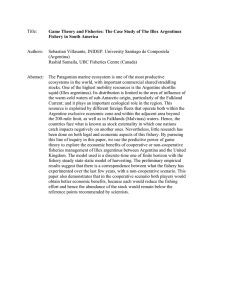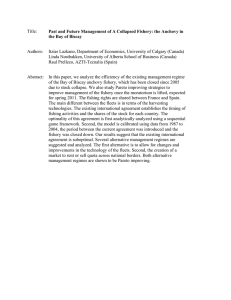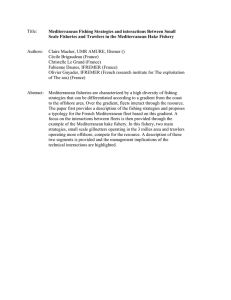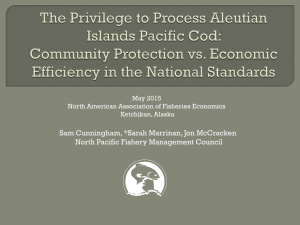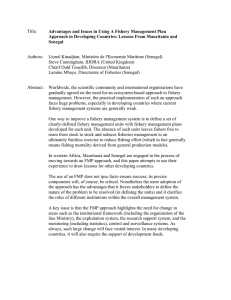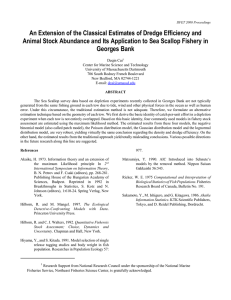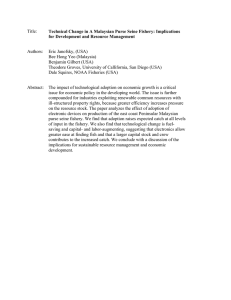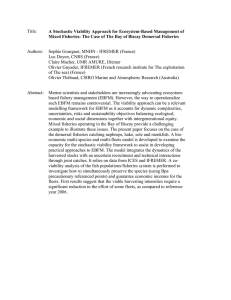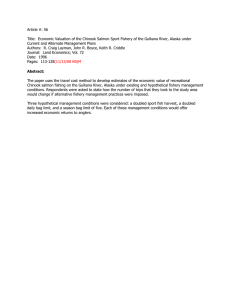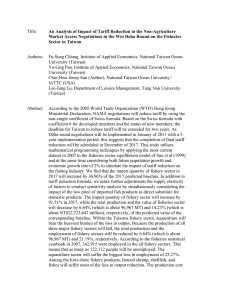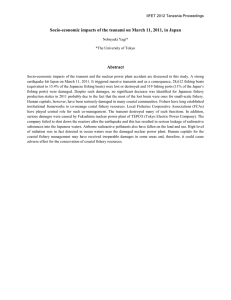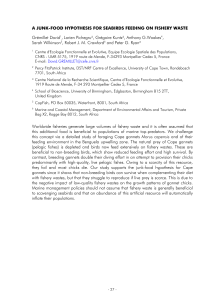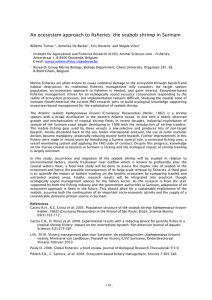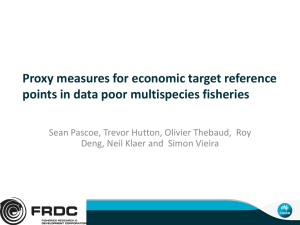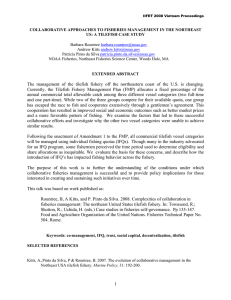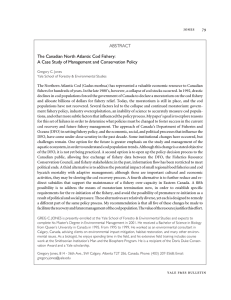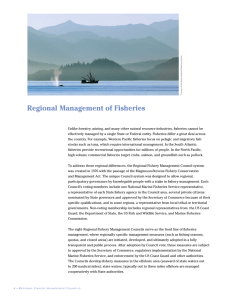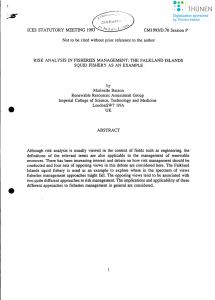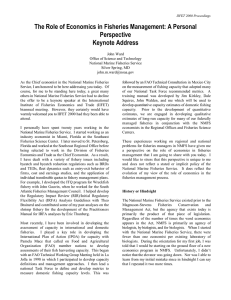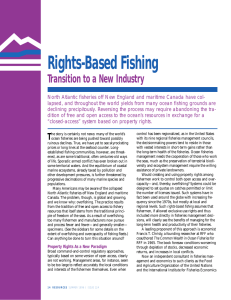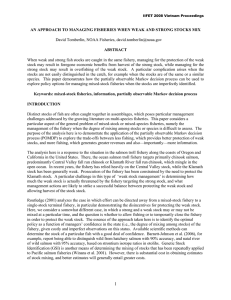Integrated assessment of the coastal fishery production systems in French... Abstract
advertisement
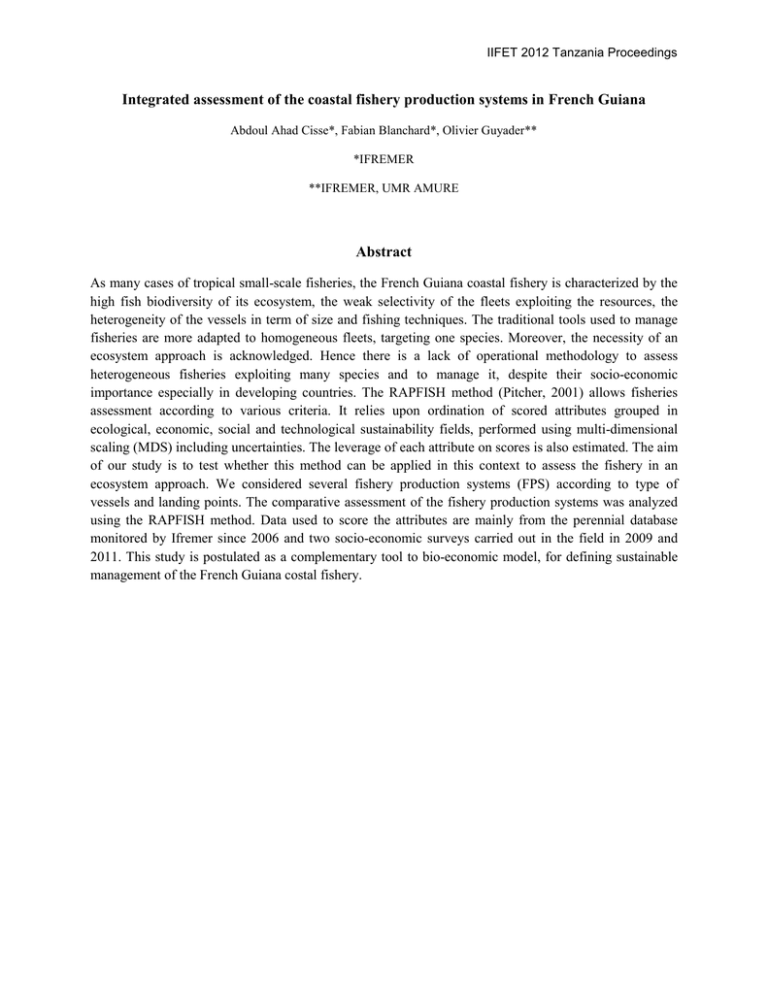
IIFET 2012 Tanzania Proceedings Integrated assessment of the coastal fishery production systems in French Guiana Abdoul Ahad Cisse*, Fabian Blanchard*, Olivier Guyader** *IFREMER **IFREMER, UMR AMURE Abstract As many cases of tropical small-scale fisheries, the French Guiana coastal fishery is characterized by the high fish biodiversity of its ecosystem, the weak selectivity of the fleets exploiting the resources, the heterogeneity of the vessels in term of size and fishing techniques. The traditional tools used to manage fisheries are more adapted to homogeneous fleets, targeting one species. Moreover, the necessity of an ecosystem approach is acknowledged. Hence there is a lack of operational methodology to assess heterogeneous fisheries exploiting many species and to manage it, despite their socio-economic importance especially in developing countries. The RAPFISH method (Pitcher, 2001) allows fisheries assessment according to various criteria. It relies upon ordination of scored attributes grouped in ecological, economic, social and technological sustainability fields, performed using multi-dimensional scaling (MDS) including uncertainties. The leverage of each attribute on scores is also estimated. The aim of our study is to test whether this method can be applied in this context to assess the fishery in an ecosystem approach. We considered several fishery production systems (FPS) according to type of vessels and landing points. The comparative assessment of the fishery production systems was analyzed using the RAPFISH method. Data used to score the attributes are mainly from the perennial database monitored by Ifremer since 2006 and two socio-economic surveys carried out in the field in 2009 and 2011. This study is postulated as a complementary tool to bio-economic model, for defining sustainable management of the French Guiana costal fishery.
